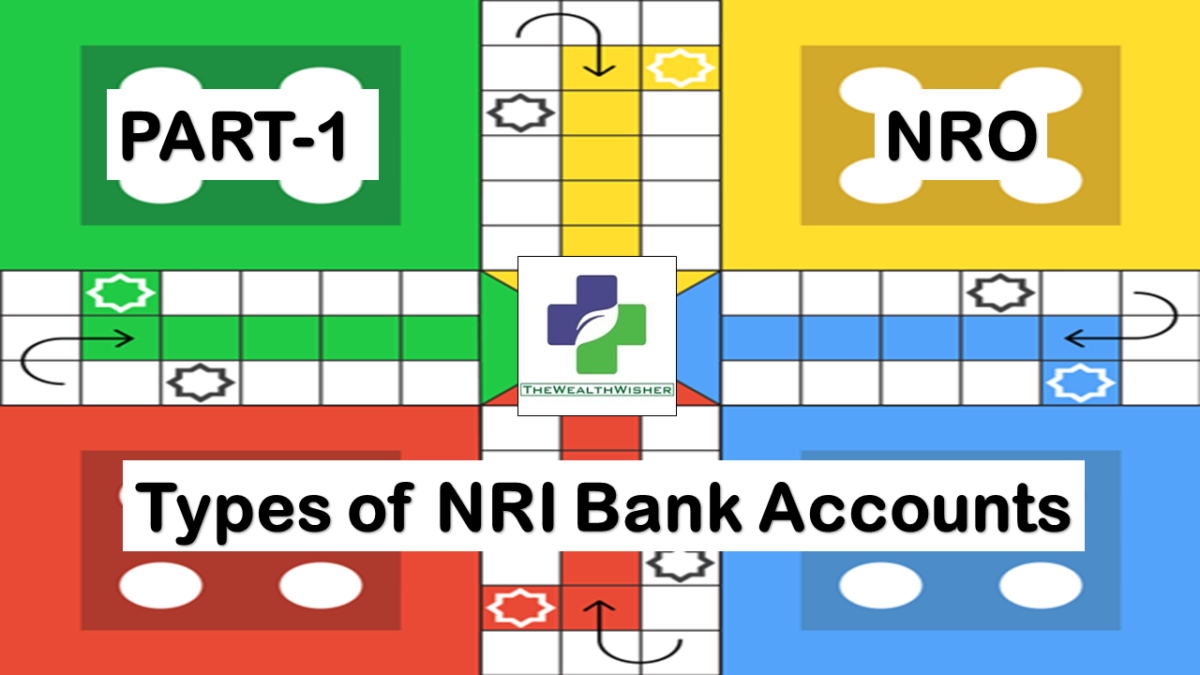This is Part 1 of series of 4 updated articles to update you on the Types of NRI Bank Accounts. We will discuss here the NRO Account for NRI. This is the most basic account required by NRIs to manage their home affairs. Yes, the existing Indian savings & future earning should come to NRO accounts for NRI. This is because the FEMA Act does not allow you to open or maintain the existing Savings account once you become or intend to become an NRI.
We are giving you complete details of NRI related bank accounts. These are:
NRO Account for NRI (Current Article)
NRE Account (Click for Details)
FCNR Account (Click For Details)
RFC Accounts (Click for Details)
You will find complete details, prevailing interest rates, features, requirements, purpose, allowed credits & other datils of these NRI accounts in the above-mentioned articles.
Let us start with:
What is NRO account for NRI?
The full form is – Non-Resident Ordinary Rupee Account.
Any person resident outside India may open NRO account with any branch for the purpose of putting through bonafide transactions in rupees.
Opening of NRO account by individual/ entities of Pakistan and entities of Bangladesh require prior approval of Reserve Bank of India.
NRO (current/savings) account can also be opened by a foreign national of non-Indian origin visiting India/ foreign national students.
NRO accounts may be opened/maintained in the form of current, savings, recurring, or fixed deposit accounts.
Account should be denominated in Indian Rupees. The accounts can also be opened with/out of the funds received as foreign inward remittances in convertible currency through normal banking channels. The Foreign Currency Travellers Cheques / Notes may be accepted during temporary visits of the NRI, for credit to the account.
The accounts can also be opened with the Legitimate local dues denominated in Indian Rupees viz. rent/dividend / pension/interest / sale proceeds of assets etc.
At the time of change of status from Indian resident to Non-resident Indian, existing accounts may be designated as Non-resident (Ordinary) Accounts.
Transfer of funds from FCNR (B) / NRE a/c to NRO a/c is also permitted. NRO accounts be opened jointly with Indian residents only on a ‘former or survivor’ basis. NRIs and PIOs may hold an NRO account jointly with other NRIs and PIOs.
The nomination is allowed in favor of a resident or Non-resident Indian.
NRO-Term Deposit Accounts or NRO FD
These term deposits or NRO FDs are available with similar to maturity periods available under domestic deposit schemes. The Interest Rate payable on NRO accounts is same as that is payable under domestic deposit schemes.
Under NRO Deposit, premature withdrawal of deposits is allowed at the request of the depositor. The penalty levied on pre-mature withdrawal is decide by bank.
Other features of NRO account for NRIs
NRO accounts for NRI attract TDS on the interest paid.
Power of Attorney is permitted to operate. However, operations restricted to local disbursements (other than gifts to residents), including for investments subject to compliance of relevant regulations. But remittances/repatriation abroad may be made only to account holders.
The request of addition or deletion of a joint holder is allowed as per rules specified by the bank.
DEBIT-cum-ATM Card, Internet Banking & Chequebook facility is available for NRE account holders. The same is
provided, upon request.
Permissible Credits and Debits in NRO Account
Permissible Credits in NRO Account
(i) Proceeds of freely convertible currency foreign inward remittances, received through normal banking channels.
(ii) The Foreign Currency Travellers Cheques / Notes may be accepted during temporary visits of the NRI.
(iii) Transfers from rupee accounts of non-resident banks.
(iv) Legitimate dues in India of the account holder. This includes current income like rent, dividend, pension, interest, etc. as also sale proceeds of Assets including immovable property acquired out of rupee/foreign currency funds or by way of legacy/inheritance.
Permissible Debits in NRO Account
(i) All local payments in rupees including payments for investments in India subject to compliance with the relevant regulations made by the Reserve Bank.
(ii) Remittance outside India of current income like rent, dividend, pension, interest, etc. in India of the account holder.
(iii) NRI/PIO may remit current income from the balances held in NRO account an amount not exceeding USD one million includes sale proceeds of immovable properties per financial year, subject to payment of applicable taxes.
Repatriablity under NRO Accounts
NRI/PIO may remit from the balances held in the NRO account an amount not exceeding USD one million per financial year, subject to payment of applicable taxes. The limits of USD 1 million per financial year includes sale proceeds of immovable properties held by NRIs/ PIOs.
Other than current income and the limit of USD 1 Million per financial year applicable to NRIs/PIOs, balances in NRO accounts cannot be repatriated without the prior approval of RBI.
Remittances from NRO account for NRI
RVI allows $1 million per year from NRO account. But any amount over this needs to adhere to the procedure of filling for 15CA &15CB. Details Here
TDS on NRO Accounts
As mentioned, the Interest Income is taxable for NRO accounts. They also have TDS which is deducted currently at the rate of 30.9%. (This is very high considering the tax slabs).
The TDS amount is reflected in form 26AS.
NRO depositor can apply for a refund of TDS while filling in Annual Income Information (ITR).
For any other questions, use the comments section below or email us the query.








